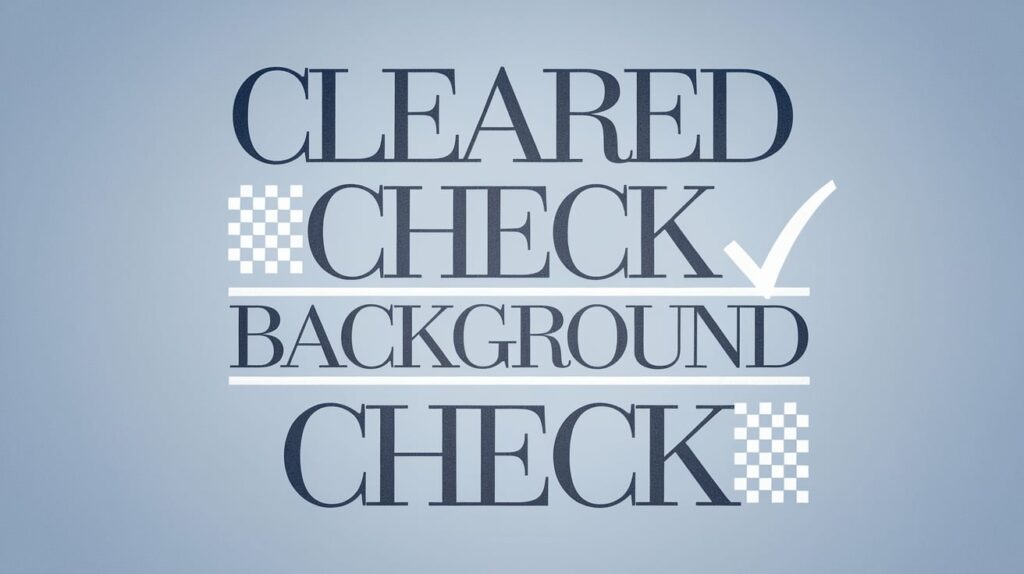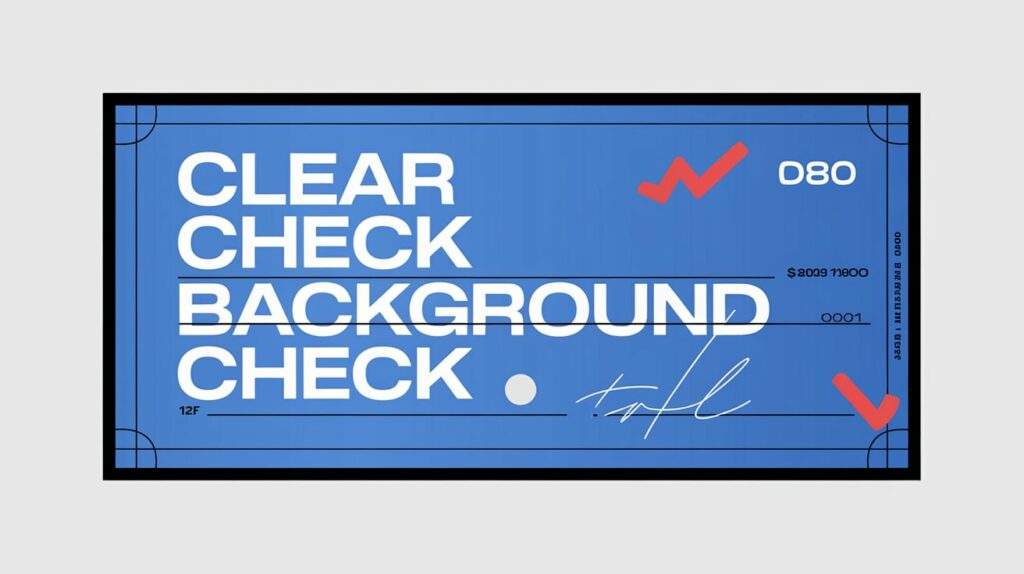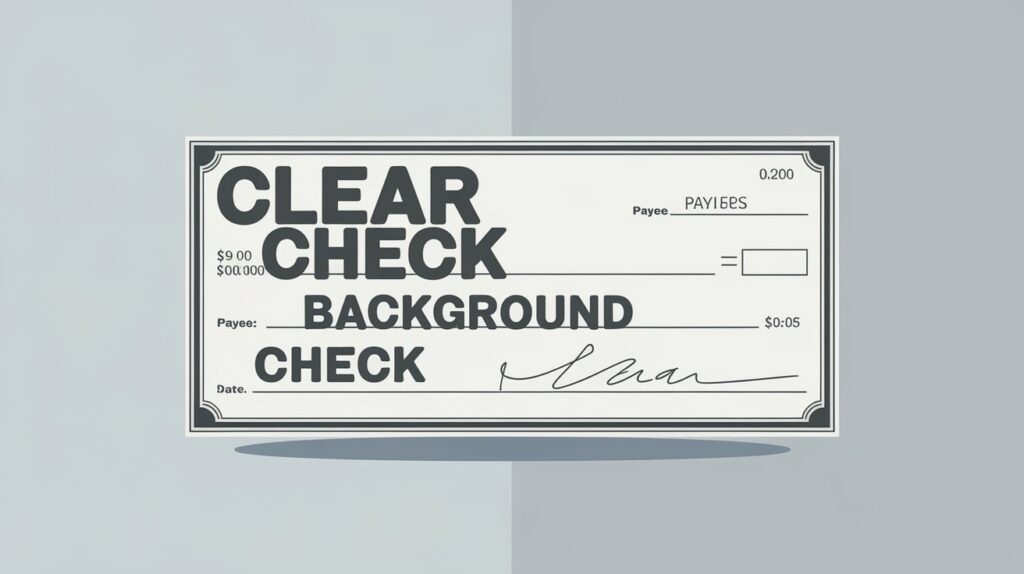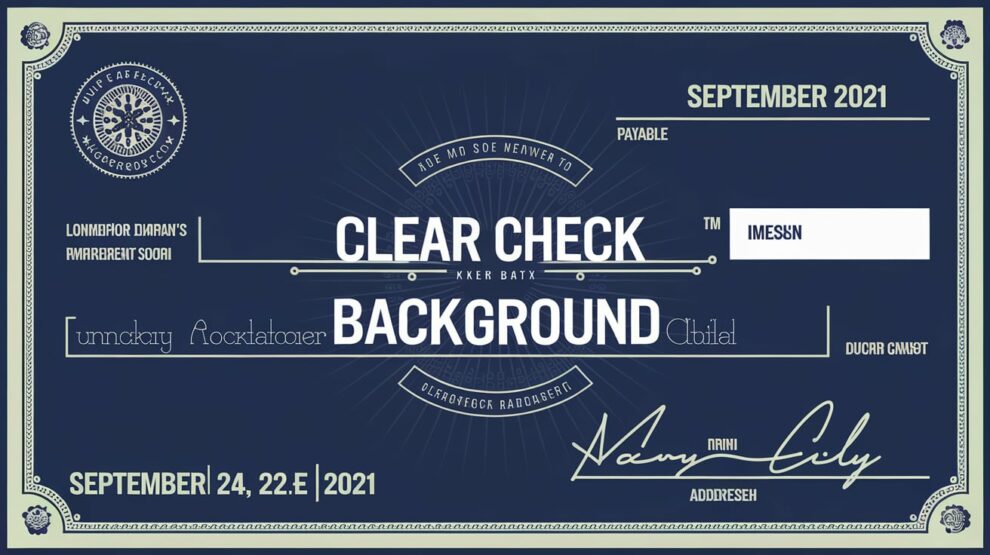Hiring in 2025? Don’t Risk It. Discover How Clear Check Background Checks Help You Hire Smarter, Safer, and Faster.
Table of Contents
In today’s fast-moving world, trust and security are non-negotiable — especially when it comes to hiring, volunteering, or partnering with individuals in positions of responsibility. Whether you’re a business owner, school administrator, nonprofit leader, or a job applicant, understanding the Clear Check background check process is essential for compliance, safety, and peace of mind.
Clear Check is a background screening service widely used to verify the criminal, professional, and personal history of individuals. From checking criminal records to ensuring professional licenses are valid, Clear Check helps employers and organizations make informed decisions with confidence.
This 2025 guide covers what Clear Check includes, who uses it, how the process works, and what you should expect — whether you’re requesting a background check or undergoing one.
What Is Clear Check?
Clear Check is a background screening service provider that helps employers and organizations verify the history and identity of individuals. They specialize in providing fast, legally compliant, and customizable background check solutions tailored to specific industries and roles.
By integrating advanced technology with public records databases, Clear Check ensures that its clients receive up-to-date and reliable information about a person’s:
- Criminal history
- Employment and education background
- Licenses or credentials
- Identity verification
- Drug and driving records (if required)
This helps organizations make informed decisions and reduce risks when hiring or approving individuals for sensitive roles.
Who Uses Clear Check Background Checks? (Detailed Use Cases)
Clear Check serves a wide variety of sectors. Here’s how it’s used:
HR Departments
Human Resources teams use Clear Check to screen job applicants during the hiring process. It helps verify claims on resumes, uncover past criminal activity, and ensure compliance with company or legal standards.
Schools & Childcare Centers

Educational institutions rely on background checks to protect children and staff. Clear Check helps verify that teachers, volunteers, and aides do not have a history of violence, abuse, or fraud.
Healthcare Facilities
Hospitals and clinics use Clear Check to confirm that nurses, doctors, and other health professionals have valid licenses and clean disciplinary records. It’s also vital for checking if they have any criminal history that could affect patient safety.
Property Managers & Landlords
Clear Check is often used to evaluate potential tenants. Landlords use it to view criminal and credit histories, ensuring they rent to responsible individuals.
Nonprofit Organizations
Charities and NGOs use Clear Check to screen volunteers and employees who work with vulnerable populations such as children, the elderly, or the disabled — ensuring a secure environment.
What Does a Clear Check Background Check Include?

Clear Check offers modular screening options, allowing organizations to customize their checks. Here are the core components:
1. Criminal History
- County, state, and federal criminal records are examined for arrests, charges, convictions, and pending cases.
- National criminal databases give a broader view across jurisdictions.
- Sex offender registry checks ensure the individual isn’t registered as a sex offender, which would disqualify them from many positions.
Purpose: Protects workplaces and vulnerable populations by identifying individuals with serious or relevant offenses.
2. Identity Verification
- Social Security Number (SSN) trace checks whether the SSN is valid and matches the applicant.
- Alias and name history reveals any past name changes or identities used.
- Address history is traced to verify residence claims and detect any inconsistencies.
Purpose: Confirms the individual’s true identity and flags potential identity fraud.
3. Employment Verification
- Confirms that an applicant actually worked where they claimed.
- Verifies job titles, dates of employment, and reason for leaving (if applicable).
Purpose: Prevents falsified job experience and confirms job responsibilities.
4. Education Verification
- Checks whether the applicant attended the claimed schools and earned the stated degrees or certificates.
Purpose: Identifies resume fraud and confirms necessary credentials.
5. Professional License Checks
- Verifies the validity of any required professional licenses (e.g., RN, CPA, CDL).
- Includes any disciplinary actions or sanctions issued by licensing boards.
Purpose: Ensures the person is legally and professionally qualified.
6. Drug Testing & Driving Records (if requested)
- DOT-compliant drug testing screens for illegal substances or misuse of prescription drugs.
- Driving record (MVR) checks reveal traffic violations, license status, and DUI history.
Purpose: Ensures safety for roles that involve transportation, machinery, or drug-free work zones.
How the Clear Check Process Works (Step-by-Step)
1. Authorization
The applicant must sign a consent form (usually electronic), granting permission to perform the background check. This is required under federal law.
2. Data Collection
The organization collects basic personal information (name, SSN, date of birth, etc.) and submits it to Clear Check.
3. Search & Verification
Clear Check accesses public and private databases, contacts past employers, educational institutions, and licensing boards to verify submitted information.
4. Results Delivery
Most background checks are completed in 24–72 hours. The results are shared securely with the requesting party via an online portal.
5. Review & Decision
The employer reviews the results and decides whether to proceed, reject, or further inquire based on the findings.
FCRA compliance: If negative action (e.g., denial of employment) is based on the report, the individual must be notified and provided a copy of the report.
Common Reasons for Background Check Failures

These red flags can result in a negative hiring or clearance decision:
- Criminal convictions for violent, sexual, or theft-related offenses
- False claims about employment or education history
- Inactive, revoked, or fake licenses
- Positive drug test results
- Unresolved legal matters like outstanding warrants or unpaid court fines
Individuals usually have the right to dispute inaccurate findings.
Tips to Prepare for a Clear Check Background Check
Be Honest
Always provide accurate, complete information on your resume or application. Discrepancies will likely be discovered.
Notify References
Let your former employers or references know they may be contacted. This ensures faster and more favorable responses.
Check Your Own Records
Run a self-background check or obtain a copy of your credit and criminal reports to see what employers may find.
Report Name Changes or Aliases
Include any other names you’ve used, such as maiden names or legally changed names, to avoid missing or mismatched records.
Respond Promptly
If the background check provider contacts you for more info (e.g., proof of graduation, SSN verification), reply quickly to avoid delays.
Frequently Asked Questions (FAQs)
Q1: How long does a Clear Check background check take?
A: Most screenings are completed within 1 to 3 business days, but it may take longer if additional verification is needed.
Q2: Will I see the report before it’s sent to the employer?
A: You can request a copy of your report if one is used to make a decision about you.
Q3: What if there’s a mistake on my report?
A: Contact Clear Check’s dispute resolution team. They’re required by law to investigate and correct inaccuracies.
Q4: Is Clear Check compliant with background screening laws?
A: Yes. Clear Check complies with the FCRA and state regulations related to background reporting and candidate rights.
Q5: Can I run a Clear Check on myself?
A: Yes. Clear Check offers self-check options for individuals who want to review their own background records for accuracy.
Conclusion
The Clear Check background check is an essential part of today’s hiring and clearance process. It protects organizations from risk and ensures only qualified, trustworthy individuals are placed in sensitive or responsible roles. Whether you’re an applicant or an employer, knowing how the process works — and how to prepare — can make all the difference.
In 2025, safety, compliance, and transparency aren’t optional. They start with a clear background check.
Do Follow Dragcast on Social Media For More Such Content.












Add Comment